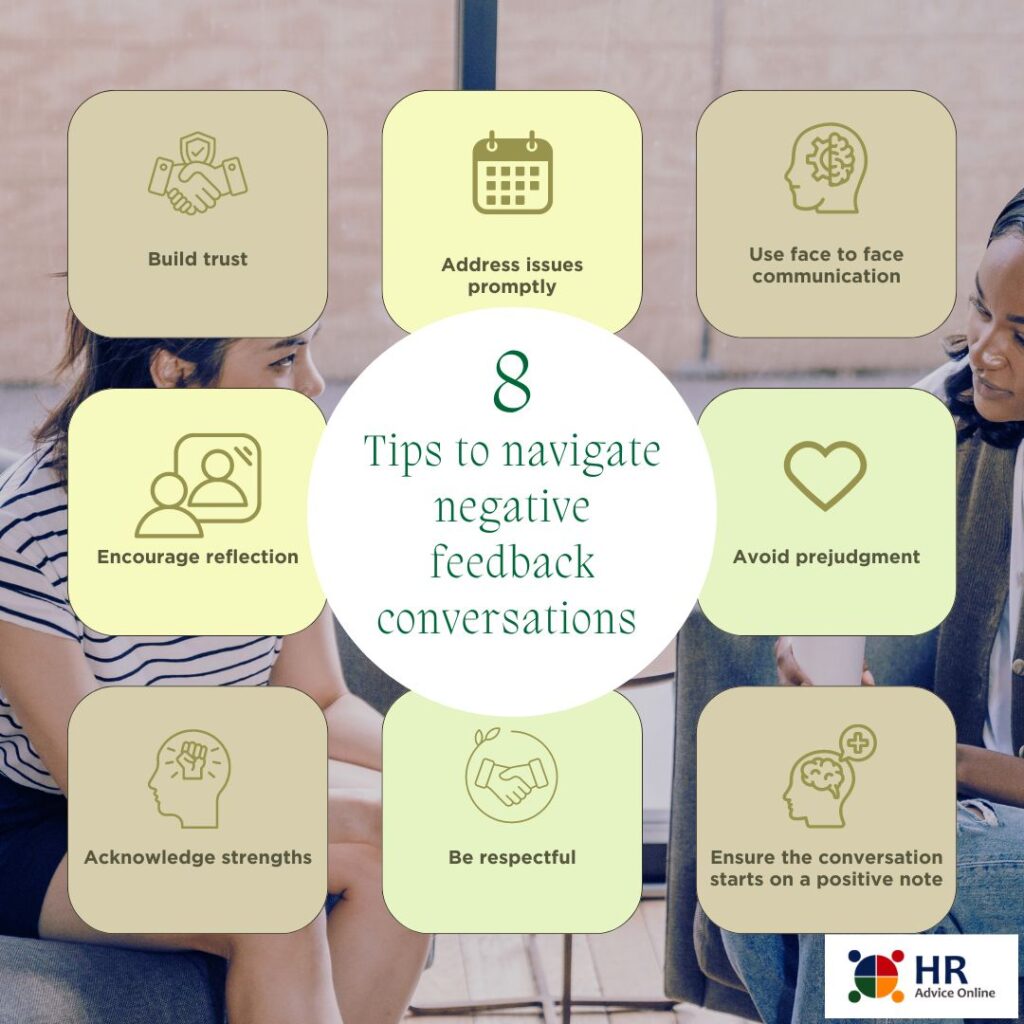Giving Employee feedback – Navigating a difficult conversation
Tips to navigate negative feedback conversations:
Address issues promptly. Providing timely feedback ensures it is relevant and actionable, helping employees address issues promptly and prevent performance concerns from recurring or escalating.
Use face to face communication. Be personable and genuine. Face to face feedback supports the relationship between yourself and the employee and the feedback being provided is less likely to become misconstrued. Avoid any miscommunication.
Avoid prejudgement. Be open to the employee. Be prepared to listen – not just talk. It is ok to have a plan for the conversation but allow the conversation to occur and be open to the employee response before reaching any conclusions.

Ensure the conversation starts on a positive note. Starting a conversation positively can support the employee engagement in the conversation and enable the employee to better receive the information.
Be respectful. Ensure that the delivery of feedback is done in a way that is respectful, professional, considered, and always constructive.
Acknowledge your employee’s strengths. Recognising and balancing both strengths and areas for improvement ensures that employees receive acknowledgment for their efforts and achievements, not just feedback on where they need to improve.
Encourage reflection. Ask your employee reflective questions and provide the employee time to reflect and respond to the feedback. Engage in conversation with them about their performance and any contributing actions and ways in which they can improve.
Build trust. Ensure that these discussions are always held privately and done in a confidential manner. An employee is likely to develop trust where this is prioritised and fostered. An employee who feels safe and has trust in the employment relationship is more likely to receive negative feedback well and use the feedback constructively.




